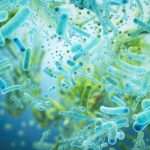What is already known
COVID-19 is an infectious disease caused by the SARS-CoV-2 virus. In some people, inflammation due to COVID-19 can trigger a ‘cytokine storm,’ a dangerous condition in which the immune system can get overwhelmed. As a result, people may acquire secondary infections, which contribute substantially to COVID-19 mortality. However, the factors driving secondary infections remain poorly understood.
What this research adds
Using a combination of microbial cultivation, RNA sequencing and tissue assessment, researchers examined autopsy samples from 20 people with COVID-19 and 14 individuals without the disease. The lung microbiotas of people with COVID-19 had a reduced diversity compared to those of controls. About 40% of people with COVID-19 developed secondary infections. In some cases, secondary infections were caused by multiple microbes, including bacterial species such as Staphylococcus aureus and Klebsiella pneumonia as well as fungal species such as Candida and Rhizopus. Some of these microbes have also been observed in secondary infections in people with influenza, Severe acute respiratory syndrome (SARS) and Middle East respiratory syndrome (MERS). In five cases, people with COVID-19 also had infections with Epstein Barr virus. In fluids from the lung of people with COVID-19, the researchers found high proportions of inflammatory cells called macrophages and of myeloid cells, a type of blood cells that is recruited into local tissues upon pathogen invasion.
Conclusions
The findings suggest that COVID-19 alters the local immunity of the lung in ways that weaken the body’s antimicrobial defense and facilitate the development of secondary infections.
Many deaths associated with COVID-19, an infectious disease caused by the SARS-CoV-2 virus, occur because of secondary infections with harmful bacteria. New research shows that the microbiotas of people with COVID-19 have a reduced diversity compared to those of people without the disease.
The findings, published in iScience, suggest that COVID-19 alters the local immunity of the lung in ways that weaken the body’s antimicrobial defense and facilitate the development of secondary infections.
In some people, inflammation due to COVID-19 can trigger a “cytokine storm,” a dangerous condition in which the immune system can get overwhelmed. As a result, people may acquire secondary infections, which contribute substantially to COVID-19 mortality. However, the factors driving secondary infections remain poorly understood.
Researchers led by Kurt Zatloukal and Gregor Gorkiewicz at the Medical University of Graz studied autopsies to determine major organ pathologies and identify secondary infections.
Reduced diversity
Using a combination of microbial cultivation, RNA sequencing and tissue assessment, the team examined autopsy samples from 20 people with COVID-19 and 14 individuals without the disease.
Lungs were the organs more often damaged in people with COVID-19. The two major factors of COVID-19 lethal course were diffuse alveolar damage — a series of changes that occur to the lungs during injury or disease — and the presence of secondary infections.
Bacteria are thought to be the dominant component of the lung microbiota. However, the lung microbiotas of people with COVID-19 had a reduced diversity compared to those of controls. Fungal and viral species other than SARS-CoV-2 were also frequent in people with COVID-19, the researchers found.
Secondary infection
About 40% of people with COVID-19 developed secondary infections. In some cases, secondary infections were due to multiple microbes, including bacterial species such as Staphylococcus aureus and Klebsiella pneumonia as well as fungal species such as Candida and Rhizopus. Some of these microbes have also been observed in secondary infections in people with influenza, Severe acute respiratory syndrome (SARS) and Middle East respiratory syndrome (MERS). In five cases, people with COVID-19 also had infections with Epstein Barr virus (EBV).
In fluids from the lung of people with COVID-19, the researchers found high proportions of inflammatory cells called macrophages and of myeloid cells, a type of blood cells that is recruited into local tissues upon pathogen invasion.
The study, the researchers say, “showed that lung immunity is impaired in COVID-19, which might drive these infections.” This finding, they add, “was also underscored by the presence of polymicrobial infections and EBV indicative for a general decreased immunity.”
Future work should focus on describing the time course of immuno-suppression during COVID-19. This knowledge could lead to the development of therapies for secondary infections in COVID-19 and other diseases, the authors say.











